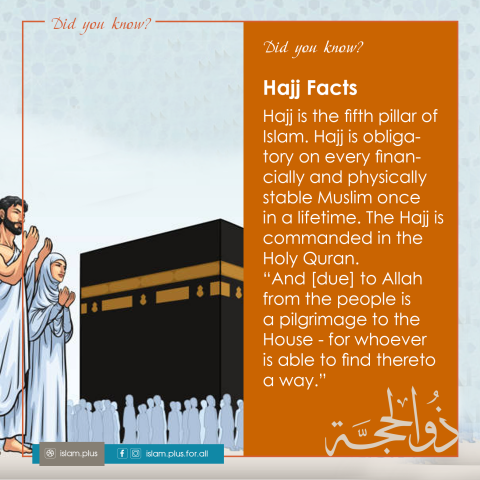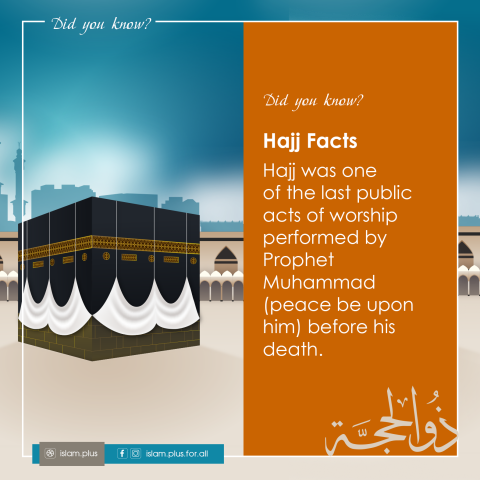Dr. Wael Hamza
Going through difficult times such as the ones we are going through as Muslims nowadays, it is quite comforting to read Allah’s promise in the Qur’an:
"Indeed with the difficulty there is an ease. Indeed with the difficulty there is an ease" (Al-Inshirah 5-6)
However a thought that comes to everyone’s mind is,
- Why do we have to go through difficulties in the first place? Why doesn’t Allah make our life one full of ease?
- Why do people of the truth have to be tried, tortured, oppressed, and killed by the people of the falsehood? Why doesn’t Allah grant His people victory and support without having to suffer through tough times?
- All the people of Makkah believed in the Prophet and became Muslims. Why would they oppose him, torture him and his companions, and fight Islam and Muslims for 23 years only to become Muslims at the end? Wasn’t it better to skip all these calamities?
- Why do we have to see people in Syria killed and injured? Why do Muslims suffer the consequences of Islamophobia which take away their right or their spirit to say the least?
Reading the words of Allah in the Qur’an and those of His Prophet (peace and blessings be upon him), one can find answers to those questions and understand a great wisdom behind this tradition.
1. "And if Allah wills, he would have defeated them yet to test you with one another…" (Muhammad 47:4)
Probably the first and the most important explanation of why people of the truth have to go through difficult times is explained by this eloquent verse above.
Allah states that He can defeat His enemies without the help of the believers. He, sure, is capable of anything. However, the sunnah (law) of Allah is to do that through us so we would be tested. This life is nothing but a test.
"It is He who created death and life to test you …" (Al-Mulk 67: 2).
Part of this test is for Allah to show who would stand for the truth and support it. If it were not for these tough times, people will always claim they stand by the truth. These claims have to be verified by tests and tribulations. Allah says,
"Do people think that they will be left to say we believe and they will not be tried?" (Al-`Ankabut 29:2)
Allah reminds us with the reason for these trials,
"And indeed Allah will know who is truthful and who is a liar" (Al-`Ankabut 29:3)
Difficult times are decisive and differentiating. They show those who are truthful and those who are not.
2. "When is the victory and the support of Allah?…" (Al-Baqarah 2:214)
This statement was made by a group of believers and their messenger when they were touched by difficulty and they were shaken on their path to Allah. Allah said to His Messenger, to the believers, and to all humanity that the path to Allah is full of these tough times:
"Or do you think that you would enter the garden while yet the state of those who have passed away before you has not come upon you; distress and affliction befell them and they were shaken violently, so that the Messenger and those who believed with him said: When will the help of Allah come? Now surely the help of Allah is near!" (Al-Baqarah 2:214)
As the verse reiterates that it is inevitable to face difficulty, it brings the readers’ attention to three important beliefs:
- Victory belongs to Allah,
- It is very near,
- Call upon Him to bring it about.
Difficulties help attach the believers to Allah in a comprehensive way. Their hearts will be attached to Him and their hopes will only be in Him. Difficult times nurture tawhid in the hearts of the believers in ways not possible at the times of ease.
3. "And to help purge the believers…" (Aal `Imran 3:141)
After the battle of Uhud when a partial defeat happened to the Muslim army, verses came down on the believers to comfort them, correct their mistakes, analyze the event, and explain what happened. It was really a tough time that Allah described it by the word mosibah (calamity). While explaining the reason for Allah to allow such a calamity to happen to His beloved Prophet and his companions, He said "And to help purge the believers …"
The believers needed it and it indeed did purge them. It purged each individual from all impurities. It purged them from the love of this dunia, the main reason for their defeat. It purged them from the thought of turning away from supporting the truth. It purged them from the sins they possessed prior to the difficulty.
Allah calls those trials fitnah. The linguistic meaning of the word implies the use of fire. Fitnah is tough as fire is. Fire can’t damage gold. It only purifies it and makes it more beautiful. Similarly, Fitnah can’t damage the believers. It only purifies them.
Another important aspect of this ‘purging’ is when the believers ask about the reason for calamities. Allah brings their attention to the most important reason:
"It has come about by your own selves" (Aal `Imran 3:165).
This helps the believers to look into themselves, improve their performance, and fix their mistakes.
4. "And to know those who are hypocrites …" (Aal `Imran 3:167)
In addition to the individual level, the other form of purging is on the group level. Allah said, also while talking about the battle of Uhud,
"And what happened to you when the two armies met is by the Will of Allah and to know the believers. And to know those who are hypocrites…" (Aal `Imran 3:166-167)
Hypocrites exist in almost every society. They claim to side with the truth and they work so hard to deceive people. When the battle of Badr happened and Allah granted a great victory to His Messenger, a group of hypocrites emerged. The presence of such a group in any society can damage it. They look for worldly benefits and have no interest in supporting the truth. Often times, they actually side against the truth and fight it from within.
The times after the battle of Badr reminds us with the times after the Arab revolutions happened and gained partial success. Everyone sided with the revolution including those who aggressively opposed it. However, when the revolutions started facing difficulties and it became obvious that no worldly gain is going to be achieved, many people went back to opposing it. Hypocrisy is not necessarily in faith. It is also in character. Difficult times disclose all types of hypocrites and protect the society from their harm.
5. "I have not created jinn and men except to worship Me…" (Adh-Dhariyat 51:56)
It is the ultimate purpose to worship Allah. Yet worship in Islam is not just a set of rituals one does. Worship in Islam is comprehensive encompassing all types of actions, both emotional and physical. There are very valuable aspects of this worship that barely show outside the time of difficulty.
Sabr, a very comprehensive concept that includes patience, perseverance, and steadfastness, shows itself tremendously at the times of hardship. Tawakul, complete reliance on Allah, is practiced the most when times are difficult. Humility before Allah shows itself the most when we are faced by tribulations.
Repentance is one of the first resorts during difficult times. It needed Yunus (peace and blessings be upon him) to go in the darkness of the belly of the whale to call upon Allah,
"There is no god but You. Glory be to You. I have been among the unjust" (Al-Anbiya’ 21:87)
6. "To take martyrs of you…" (Aal `Imran 3:140)
Sacrifices that take place at the times of tribulations to side with the truth and support it are very appreciated by Allah. As a matter of fact, He allows it to happen so that He elevates the degree of those believers and show how much they support the truth. He selects some of them and grants them a sacrifice with the most valuable thing in their lives; that is their very lives. He then grants them a high degree in Paradise and gives them what He does not give others. May Allah have mercy on the martyrs and grant victory to the truth!
7. "Indeed with the difficulty there is an ease. Indeed with the difficulty there is an ease" (Al-Inshirah 5-6)
Finally, those who fail to see the wisdom behind the difficulty will also fail to see the ease. May Allah show us the truth and help us to follow it. May He grant us Sabr when times are difficult, and grant us ease in this life and in the hereafter.
Source: About Islam


 Quran
Quran







Add new comment